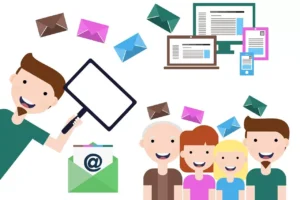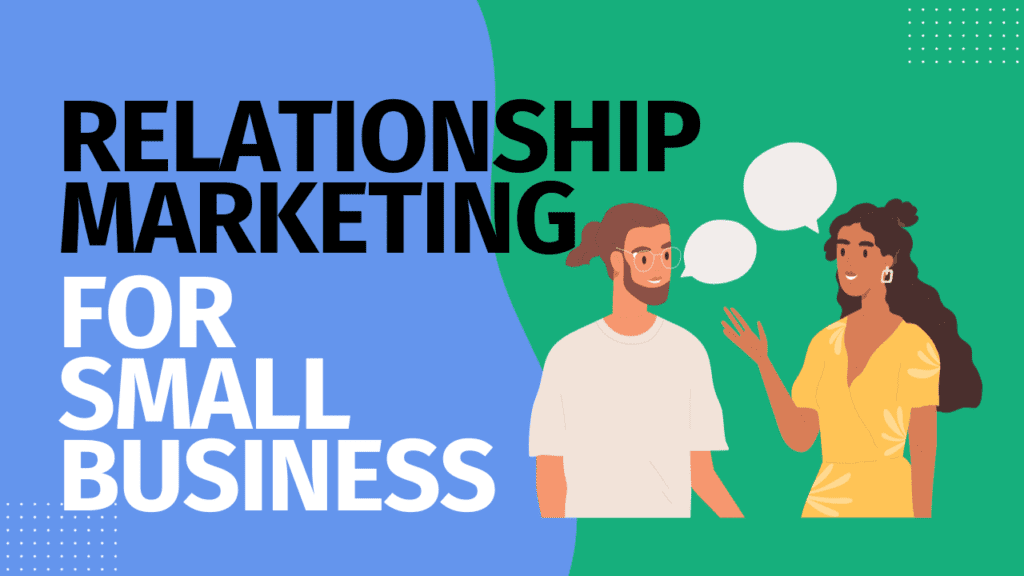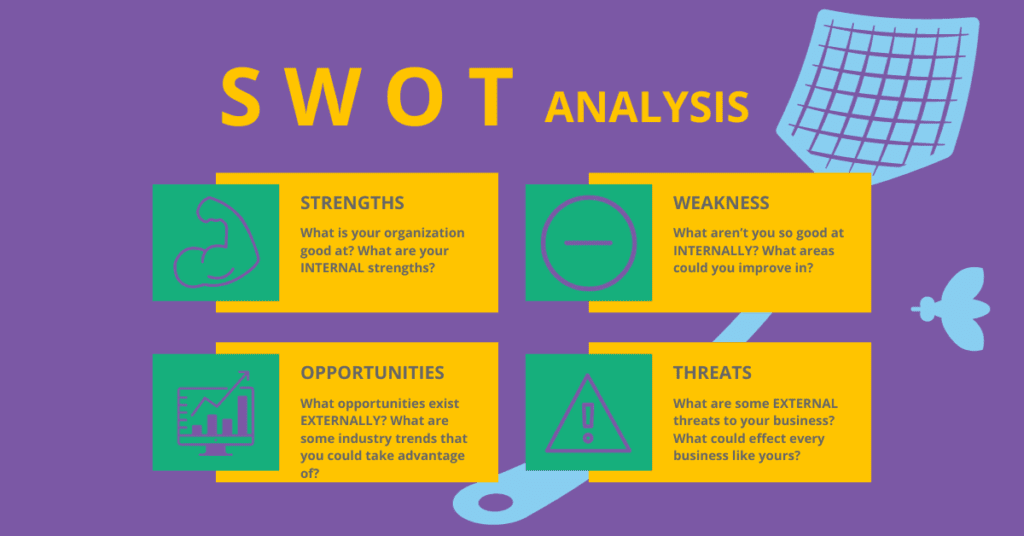Hey there, friends! Welcome to our deep dive into the world of relationship marketing – a transformative strategy that can truly elevate your business by nurturing strong, enduring connections with your customers.
As a local business owner, you might be wondering, “How can I build long-lasting relationships with my customers?” Well, relationship marketing holds the key to unlocking your business’s full potential, fostering loyalty and advocacy that can propel your success.
- 10 Strategies for Relationship Marketing in Small Business
- 1. Put Your Customers First
- 2. Personalize Your Interactions
- 3. Be Transparent and Honest
- 4. Provide Exceptional Customer Service
- 5. Build a Community
- 6. Loyalty Programs
- 7. Stay Connected Through Email Marketing
- 8. Seek Feedback and Act on It
- 9. Celebrate Milestones
- 10. Continuously Nurture the Relationship
- Wrapping it up…
10 Strategies for Relationship Marketing in Small Business
1. Put Your Customers First
At the heart of relationship marketing lies a fundamental principle – prioritize your customers. It goes beyond transactions; it’s about showing genuine care for their needs, preferences, and concerns.
Engage in meaningful conversations, respond promptly to inquiries, and strive to exceed their expectations every step of the way. Remember, building relationships is about making connections, not just sales.
Expanding on this principle means understanding your customers on a deeper level. It involves conducting surveys, hosting focus groups, or even arranging one-on-one conversations to grasp their desires and pain points. It is helpful to have a defined target market.
By truly putting your customers at the forefront of your business decisions, you’re laying the foundation for trust and loyalty that lasts.
2. Personalize Your Interactions
Personalization is the secret sauce that adds an extra touch of magic to relationship marketing. Utilize customer data to tailor your communications and offers, creating experiences that resonate with their preferences.
Addressing customers by their names in emails or sending personalized recommendations based on their past purchases makes them feel valued and special.
Going beyond simple personalization involves understanding customer journeys and crafting experiences unique to each customer. Implementing advanced personalization techniques, such as predictive analytics or behavior-based recommendations, can enhance the sense of exclusivity and deepen the connection with your brand.
3. Be Transparent and Honest

Trust is the cornerstone of any successful relationship, including the one between a business and its customers. Being transparent and honest in your dealings builds credibility and fosters trust.
Clearly communicate your business policies, pricing structures, and product/service details. If mistakes occur, own up to them, and take swift action to rectify the situation.
Extending transparency involves inviting customers behind the scenes. It might mean sharing the story behind your products, introducing the faces behind your brand through employee spotlights, or providing insights into your business practices.
Such openness not only builds trust but also humanizes your brand, making it more relatable and trustworthy. Learn more about branding your small business.
4. Provide Exceptional Customer Service
Exceptional customer service is not just a checkbox; it’s a continuous journey. Train your staff to go above and beyond in addressing customer needs. Actively listen to feedback, resolve issues promptly, and view complaints as opportunities to improve.
Consistently delivering outstanding service at every touchpoint leaves a lasting impression on customers.
Exceptional service involves creating “wow” moments. Surprise your customers with unexpected gestures, personalized gifts, or handwritten notes of appreciation.
Taking the extra step in providing exceptional service not only delights customers but also strengthens the emotional connection with your brand.
5. Build a Community
Creating a sense of belonging is crucial in relationship marketing. Encourage interactions among customers through dedicated online communities, forums, or local events.
Foster an environment where customers can engage with each other, share experiences, and become brand ambassadors.
Building a community isn’t just about bringing customers together; it’s about facilitating meaningful connections. Organizing exclusive events, webinars, or workshops where customers can interact with industry experts or influencers further strengthens the community bonds.
Engaging and fostering relationships within this community cements your brand as a trusted and integral part of their lives.

6. Loyalty Programs
Loyalty programs are more than just a way to reward repeat customers; they’re a tool for deepening connections and encouraging advocacy. Design loyalty programs that offer tangible benefits beyond discounts.
Consider early access to new products, exclusive events, or personalized rewards based on their preferences and behaviors.
Taking loyalty programs further involves implementing gamification elements. Introduce tiers, challenges, or special missions that add an element of fun and excitement.
Building an engaging loyalty program not only fosters loyalty but also creates a sense of accomplishment and belonging among your customers.
7. Stay Connected Through Email Marketing

Email marketing remains a powerful tool for staying connected with your audience. Beyond sending regular newsletters, delve deeper into segmentation and personalization.
Tailor your email content to specific segments based on customer behaviors, preferences, or purchase history to ensure relevance.
Expanding on email marketing involves nurturing a storytelling approach. Share compelling narratives, success stories, or behind-the-scenes glimpses to keep customers engaged.
Consistently delivering valuable and relevant content through emails strengthens the bond between your brand and your audience.
8. Seek Feedback and Act on It
Feedback is invaluable in the realm of relationship marketing. Encourage customers to provide feedback through various channels – reviews, surveys, or social media. More importantly, act on the feedback received.
Show customers that their opinions matter by implementing changes or improvements based on their suggestions.
Expanding on feedback means creating a feedback loop. Engage customers in the improvement process by updating them on changes made as a result of their feedback.
Demonstrating that you value and implement their suggestions not only builds trust but also turns customers into active contributors to your business growth.
9. Celebrate Milestones
Acknowledging and celebrating customer milestones is a simple yet effective way to strengthen relationships. Sending personalized greetings for birthdays, anniversaries, or acknowledging their loyalty milestones adds a personal touch.
It shows that your business genuinely cares about their journey.
Expanding on milestone celebrations involves surprising and delighting customers. Go beyond traditional celebrations; consider sending personalized gifts, arranging exclusive experiences, or creating special moments that resonate with their values.
Celebrating milestones in creative ways reinforces the emotional connection customers have with your brand.

10. Continuously Nurture the Relationship
Relationship marketing is an ongoing journey. Continuously nurturing and evolving the relationships you’ve built is vital. Keep exploring new ways to engage and delight your customers, whether through innovative campaigns, upgraded services, or exclusive events that offer unique experiences.
Expanding on nurturing relationships means embracing adaptability. Stay attuned to changing customer needs and market trends. Continuously evolve your strategies and offerings to ensure that your relationships remain relevant and impactful.
Being agile and adaptive ensures that your brand stays ahead in the ever-evolving landscape of customer relationships.
Wrapping it up…
Relationship marketing revolves around creating meaningful emotional connections with your customers. By placing their needs at the forefront, personalizing interactions, and consistently delivering exceptional service, you transform customers into loyal advocates.
So, fellow business owners, get ready to embrace the power of relationship marketing. Cultivate deep connections, and witness your business flourish with unwavering loyalty and advocacy.
May your customer-focused approach lead you to sustained success in your local community and beyond, fostering relationships that stand the test of time!
Time to do your homework! Apply the insights from our relationship marketing journey to strengthen your business's customer relationships in just 20-30 minutes! Tasks: Reflect & Select (5 mins): Take a moment to consider the strategies outlined in our relationship marketing guide. Choose two approaches that resonate most with your business model and your customers' preferences. Plan Your Approach (10 mins): For each selected strategy, outline a quick action plan. For instance, if you choose "Loyalty Programs," jot down two unique benefits or perks you can offer your loyal customers. If "Staying Connected Through Email Marketing" is your pick, think of one engaging email campaign idea tailored to your audience. Immediate Action (10 mins): Dive into action! Implement at least one element of your action plan right away. Send that engaging email, draft a loyalty program outline, or plan a special event for your community. Bonus Challenge: Monitor the impact of your actions over the next week. Keep an eye on customer engagement, any feedback received, or changes in customer interaction patterns. This assignment is a quick dive into implementing relationship marketing tactics for your business. Let's aim to fortify those customer connections and see the impact of these efforts in nurturing long-lasting relationships!



